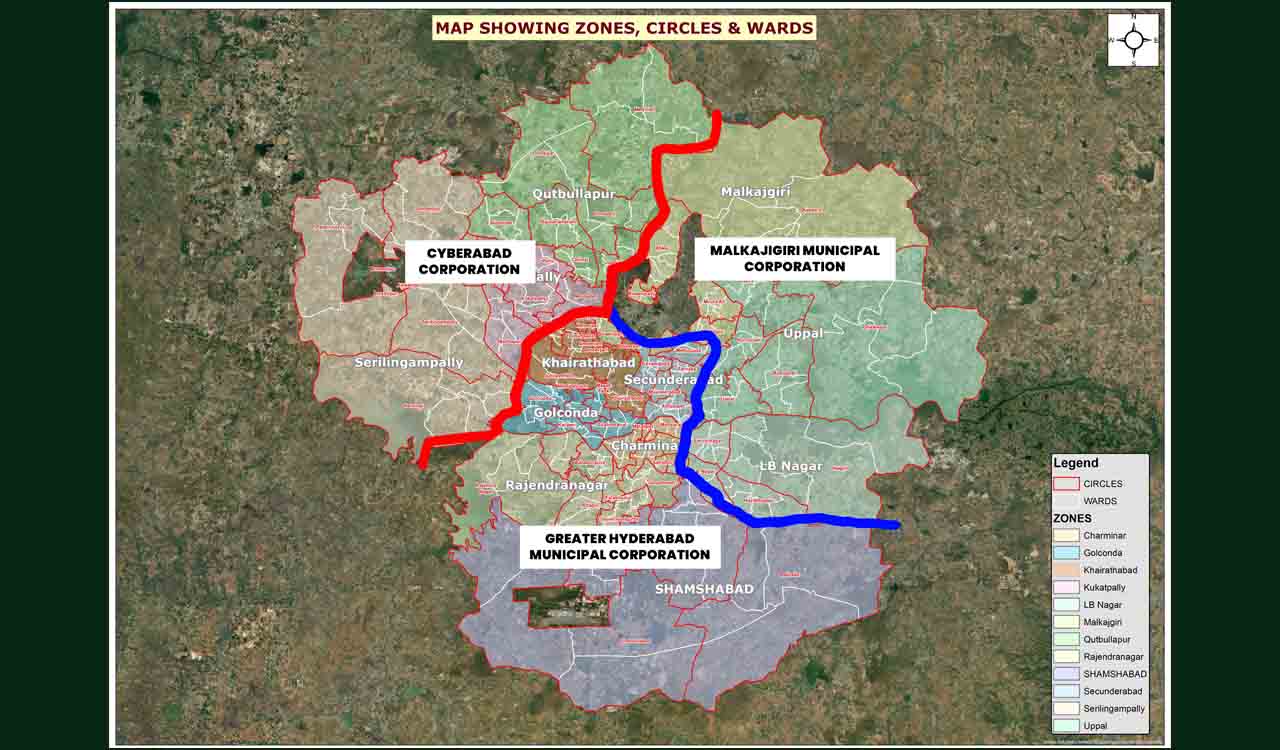Opinion: The hidden human cost of gig economy
Gig economy promises flexibility, but Marx’s theory shows it often mirrors exploitative pattern of industrial capitalism

By M Neelima
A sea of delivery bags, buzzing scooters darting through traffic, and the constant ping of new orders. Delivery workers are the lifeblood of our on-demand world, serving a growing number of people who rely on their speed and efficiency. But have you ever wondered if the challenges and discontent they face are connected to something more than just a demanding job? Their daily grind is, in fact, a modern-day reflection of a theory born in the factories of the Industrial Revolution.
Also Read
Marx’s Concept
The theory is none other than Karl Marx’s concept of alienation, a multifaceted estrangement of individuals from their labour, the products of their labour, their fellow human beings, and ultimately, their own human essence or “species-being.” While Marx primarily analysed the industrial workers in the 19th century, his insights resonate with accuracy in the dehumanising realities faced by contemporary gig workers, particularly those tethered to platforms like Zomato, Swiggy, and Uber in the digital economy. These workers, hailed for their flexibility and entrepreneurial spirit, frequently embody a modern manifestation of the very alienation he so acutely described.
Marx identified four interconnected types of alienation experienced by workers under capitalism. Firstly, they are alienated from the product of their labour, as it becomes a commodity owned by capitalists. Secondly, workers face alienation from the act of production itself, which is reduced to a means of survival rather than a fulfilling activity. The worker becomes a cog in a machine driven by profit, losing control over the process and the outcome of their work.
Workers who power these platforms are estranged from their labour, its products, their fellow humans, and ultimately, their own potential for a truly human existence
Thirdly, they experience alienation from other workers, fostering competition and hindering solidarity. Finally, capitalism leads to alienation from their species-essence, preventing them from realising their full human potential through creative and social labour. It is not hard to understand why a worker is frustrated when alienated from his very human essence and reduced to a cog in the machine. In modern times, while most forms of employment manifest at least one kind of alienation, in the case of gig workers, all four types are visible in deeper ways.
Palpable Alienations
Alienation from the product of labour is evident in the fact that Zomato and Swiggy riders deliver food they did not prepare. The value generated by their labour accrues primarily to the platform companies, with the worker receiving only a fraction in the form of per-delivery or per-ride fees. The food delivered or the journey completed (in the case of Ola or Uber drivers) becomes an alien object, existing independently of the intense effort and time invested by the worker. The fact that they can rarely afford the same product they deliver intensifies the alienation.
Alienation from the act of labour is perhaps the most palpable. The work of gig workers is often characterised by a lack of autonomy and control. Algorithms dictate routes, pricing, and even the acceptance of orders or rides. Workers are constantly under pressure from time constraints, traffic congestion, and the demands of the platform’s rating system. The joy of movement or the satisfaction of helping someone reach their destination is often overshadowed by the relentless pursuit of the next order or ride to make ends meet.
Alienation from other human beings is manifested in the competitive nature often fostered by these platforms. Workers are pitted against each other, vying for limited orders or rides, often incentivised by fleeting bonuses or penalised for refusing too many tasks. This fosters a sense of isolation and competition rather than solidarity and mutual support.
The relationship with the platform itself is impersonal, mediated by algorithms and customer service bots, further contributing to a sense of detachment and powerlessness. The shared humanity of workers, united by precarious working conditions, is obscured by the individualistic and competitive framework imposed by the platforms.
Finally, alienation from their “species-being” strikes at the core of their humanity. Marx believed that humans are inherently social and creative beings who find fulfilment in consciously shaping their world through their labour. But the repetitive and often low-skill nature of many gig tasks can stifle creativity and the development of broader human capacities.
The worker is reduced to a functional unit, an algorithmically managed resource, rather than a multifaceted individual with diverse talents and aspirations. Their labour becomes a mere means of survival, akin to an animalistic existence focused on immediate needs, rather than a conscious and creative expression of their human potential.
Dehumanising Aspects
Tragically, the gig economy is not devoid of events that starkly illustrate the dehumanising aspects of this alienation. Consider delivery riders braving extreme weather conditions, compelled to continue working to meet targets or avoid penalties — their basic human needs for safety and comfort disregarded by the relentless demands of the platform. The constant pressure to maintain high ratings from customers, even for factors beyond their control (like restaurant delays), can lead to anxiety and a feeling of being perpetually judged and disposable.
Similarly, Uber drivers often recount stories of passengers behaving rudely or even abusively, with the platform offering limited recourse. The precariousness of their income, dependent on fluctuating demand and algorithmic pricing, creates constant financial insecurity, reducing their labour to a desperate scramble for fares. The lack of benefits like health insurance or paid time-off further emphasises their status as expendable units rather than valued contributors.
Dark Reality
The alienation experienced by Zomato, Swiggy, and Uber workers is not merely an economic phenomenon; it is a profound assault on their human essence, stripping them of control, creativity, social connection, and a sense of inherent worth beyond their transactional utility.
In conclusion, while the gig economy presents a seemingly modern and flexible mode of work, a closer examination through the lens of Marx’s theory of alienation reveals that it still has many of the same exploitative problems of traditional industrial capitalism. The workers who power these ubiquitous platforms often find themselves estranged from their labour, its products, their fellow humans, and ultimately, their own potential for a truly human existence.
Their daily struggles serve as stark reminders that the promise of flexibility can often mask a reality of dehumanisation, echoing Marx’s enduring critique of a system that prioritises profit over people. The spectral hand of alienation, it seems, has found a new grip in the digital age.

(The author is a PhD Scholar, Centre for Economic and Social Studies, Hyderabad)
Related News
-
Telangana government initiates preparations for first fully digital Census 2027
2 mins ago -
Eshwar Sai bags ‘double’ in Hyderabad Open Tennis Association tournament
10 mins ago -
BJP activists attack Jagtial district chief over cross-voting row
11 mins ago -
Sports briefs: Hyderabad Open Amateur Golf from February 17 to 21
14 mins ago -
Hyderabad Cricket Association likely to hold secretary and treasurer polls in March
22 mins ago -
Krishna Nagar wins two bronze medals at Para Badminton World Championships
24 mins ago -
Congress councillor’s supporters protest against Vivek seeking vice-chairperson post in Mancherial
26 mins ago -
Nissanka’s unbeaten 100 powers Sri Lanka into Super Eights with win over Australia
26 mins ago




